Collaboratory update March 2022 | Ethiopia
The latest news and updates from our colleagues in Ethiopia
01 March 2022
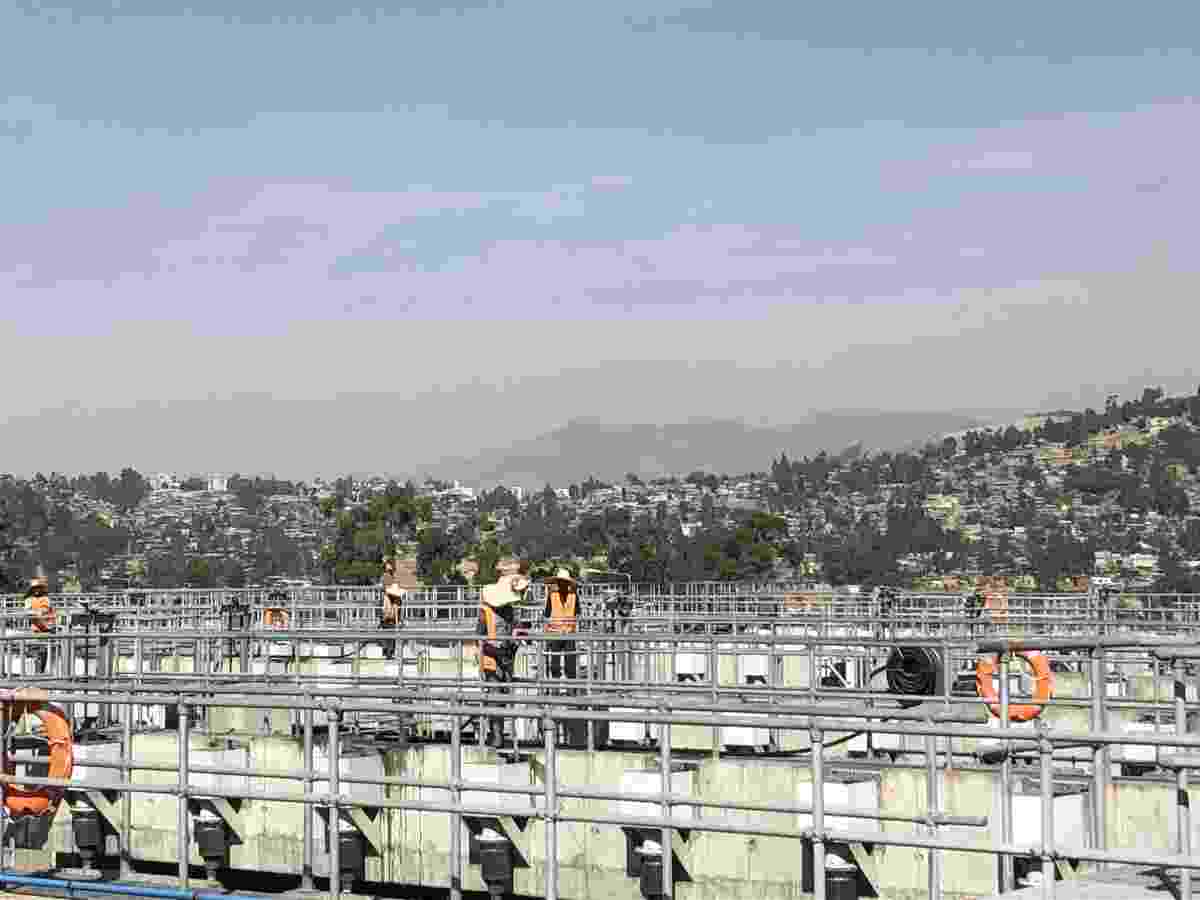

AAWSA Kaliti wastewater treatment plant
Following a period of disruption resulting from political unrest and internal conflict, and the continuing impacts of COVID-19, the Ethiopia Collaboratory team has gradually been able to return to previously halted fieldwork and activities.
Hub partners IWMI, Addis Ababa Water and Sewage Authority (AAWSA), and Newcastle University (NU) have collectively been awarded a £10,000 micro-grant by the Adaptation Research Alliance (ARA) in order to explore the burning adaptation issues facing Addis Ababa. Entitled ‘Addis Ababa Adaptation Network (AAAN): Addressing water security challenges under uncertain futures’, the project will lead to further adaptation research. As part of ongoing knowledge and awareness raising, IWMI and NU team members also delivered training on ‘Quantitative Microbial Risk Assessment (QMRA)’ to AAWSA staff, who are responsible for workers collecting and treating wastewater in Addis Ababa.
Colleagues at WLRC have received funding from the Swiss Tropical and Public Health Institute (Swiss TPH), for a study exploring the effects of heavy metals exposure on kidney patients in the Upper Awash Basin. Sample strategy and survey questionnaires have been developed, and biomarker procurement is underway. Additionally, the team has secured a further two projects: (1), ‘Inclusive governance of trade-offs and synergies between SDGs’, funded by the Dutch Research Council (NWO); (2), ‘Climate smart water management and sustainable development for food and agriculture in East Africa (WATDEV)’, led by the Italian Agency for Development Cooperation (AICS).
Continuing work on policy and governance, WLRC held consultative meetings and a training workshop on water security issues, challenges, and opportunities in the Central Rift Valley (CRV) basin. They met with participants from selected woredas (administrative divisions of Ethiopia), including members of the Ministry of Agriculture, and selected elder, women, and youth representatives. The team is also conducting fieldwork in the CRV basin to assess the relationship between governance for managing water and performance of water policy, including reliability of service provision, equity, and capacity to cope with future water challenges. This work will produce policy briefings and research designed to inform policy makers and advisors on water governance in the CRV basin.
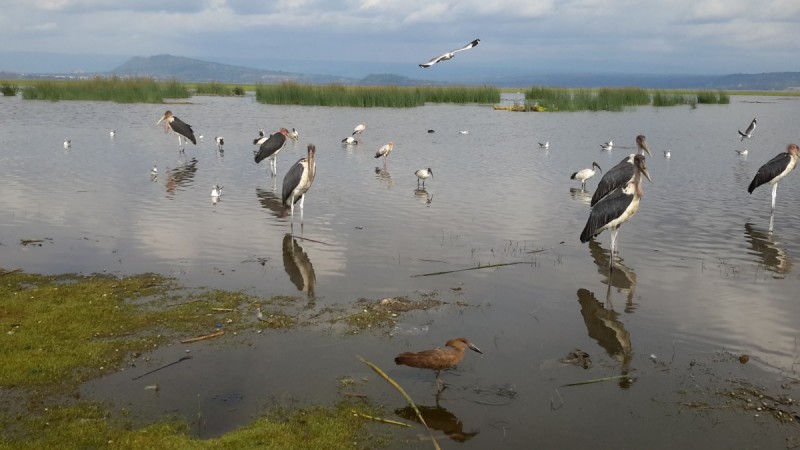
Birds in the Lake Awasa wetlands, Central Rift Valley
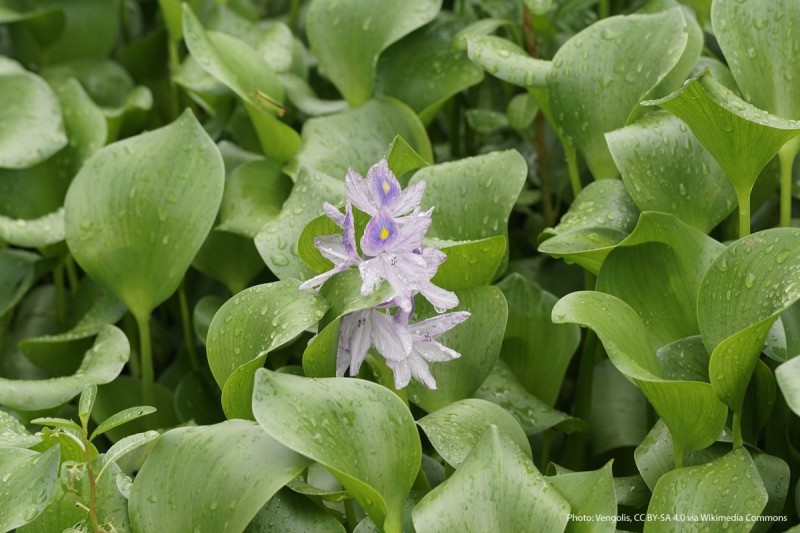
Water hyacinth, a problematic invasive species
WLRC team members have participated in several workshops and meetings with regional, national, and international stakeholders, covering topics including; resilience building for natural disasters, climate smart agriculture practises, development of an Ag-data Hub, tools related to food security and associated issues, and mitigating the impact of climate change with micro irrigation systems. Attendees of the meetings and events included representatives from the World Food Programme (WFP) Ethiopia, Ministry of Water, Ministry of Agriculture, World Bank, FAO, United Nations Development Programme (UNDP), FCDO, and CGIAR.
The IWMI team also held meetings with key stakeholders: in collaboration with consortium partners in the CRV, discussions on water hyacinth management options and safeguarding multiple water values took place with government officials, including representatives from the Ministry of Water and Energy Ethiopia (MoWe). Colleagues also attended a consultation workshop on Participatory Park Management Plan Development for the Abijata-Shalla National Park, with more than 50 participants from government bodies and authorities in attendance. Held in collaboration with Sustainable Environment and Development Action (SEDA), the conversation focused on multiple scale landscape management, and how landscape management contributes to sustaining water values long term.
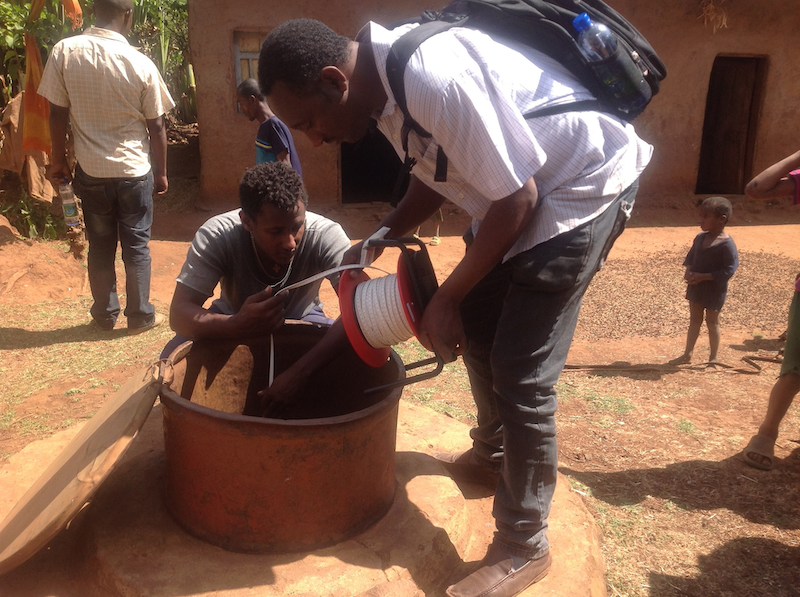

Citizen science in action, measuring shallow groundwater levels
Citizen science continues to provide and enable critical data collection for the Ethiopia Collaboratory. As part of the community-based flood early warning system study, IWMI has collated data from citizen scientists and other community groups residing in the flood prone areas of the Akaki Basin. The team also held interviews with the people living around the Akaki River. Focusing on a range of issues related to water security, communities shared their perceptions and lived experiences. The data collected will help researchers understand how a citizen science approach helped to enhance the effectiveness of the existing early warning system, reduce community vulnerability, and enhance the community’s resilience capacity. Their findings will also inform a report examining water security, access, use, ideologies and challenges in the Akaki Basin.
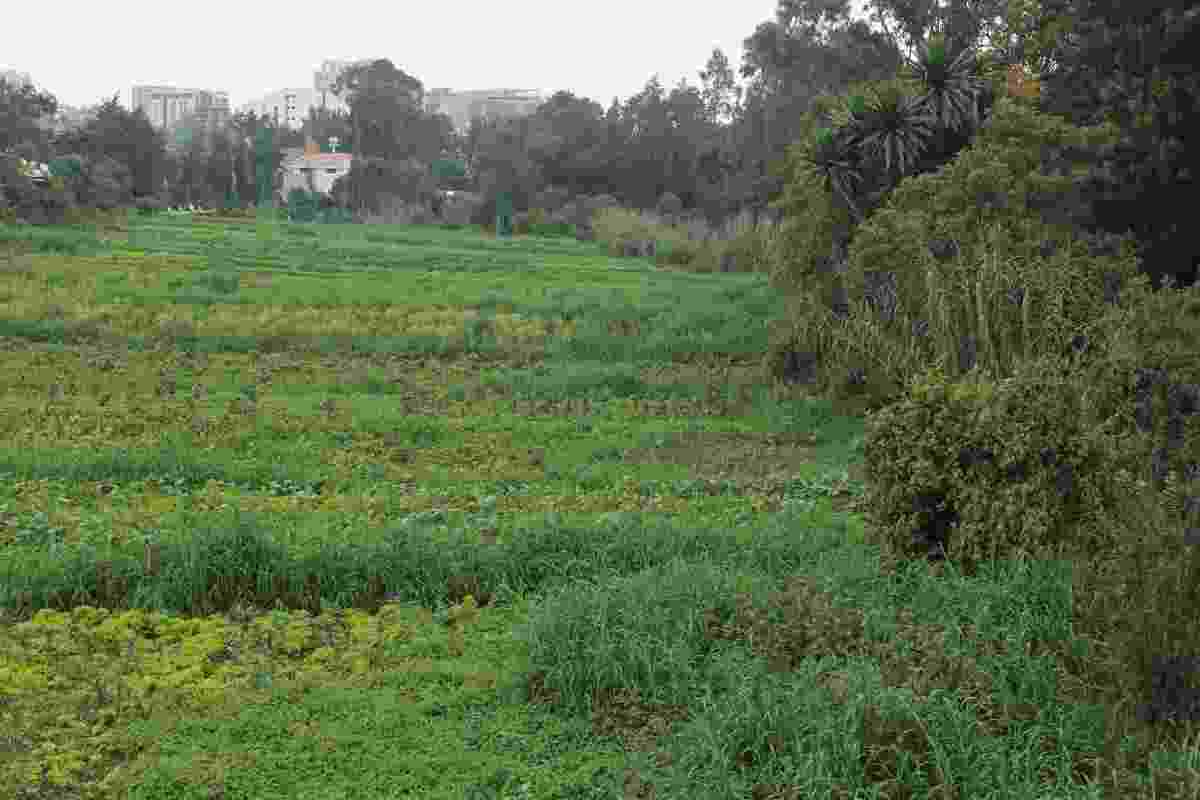

Urban irrigation using wastewater, Addis Ababa
Irrigation farms and systems are some of the biggest water users in the Central Rift Valley. The WLRC team has recently carried out field data collection to assist in understanding urban water supply and demand in towns in the CRV. Additionally, hydrologic, streamflow, and climatic data for overall water demand has been collected from over 30 meteorological stations and seven rivers/streams in the basin. As part of WLRC investigations into water pollution impacts on ecosystem degradation and human health, Dr Bitew Kassaw took post-rainy season water samples in the Upper Awash basin. Sampling points are located along the Big and Little Akaki rivers and at Lake Aba Samuel, and analysis is being conducted in collaboration with the Abbay Basin Development Office (ABDO) and MoWE.
Finally, Professor Woldeamlak Bewket and Dr Ermias Teferi from the WLRC team are serving as guest editors for a special issue of the open access journal, Land, titled ‘Impacts of Land Use and Land Cover Change on Hydrological Systems’.



